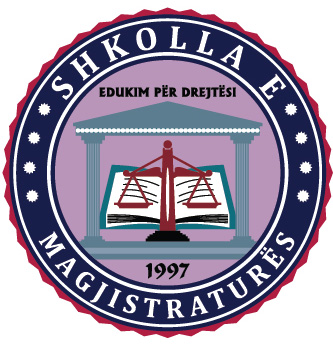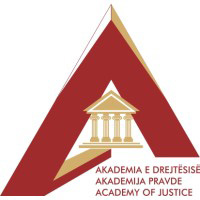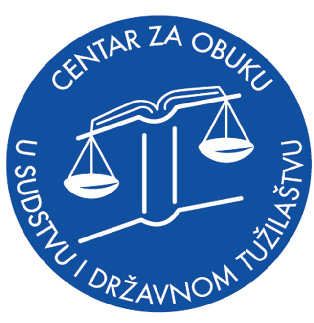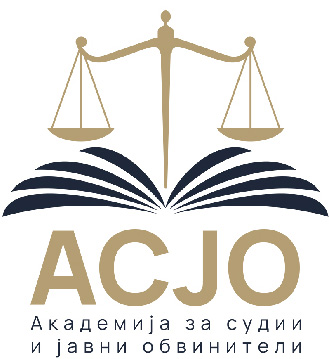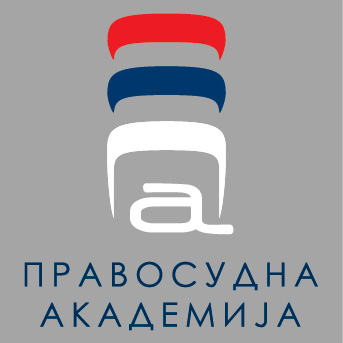Our Structure
Members
Regional board
Patrons
Partnership with judicial training institutes
Broader collaboration
The GCJ Network is comprised of judges from across the six jurisdictions of the Western Balkans, at all stages of their careers. All members commit to advancing gender equality both in how they implement laws and by contributing to their work environment in a way that is conducive to the prosperity of both women and men.
A Regional Board consisting of senior experts from across the region develops the strategy, direction and priorities of the network, ensuring that the Network caters to both local and regional areas of interest, problems, and priorities.
Membership of our Regional Board continues to grow. By the end of 2022, it will be comprised of judges and experts from all participating jurisdictions.
REGIONAL BOARD MEMBERS

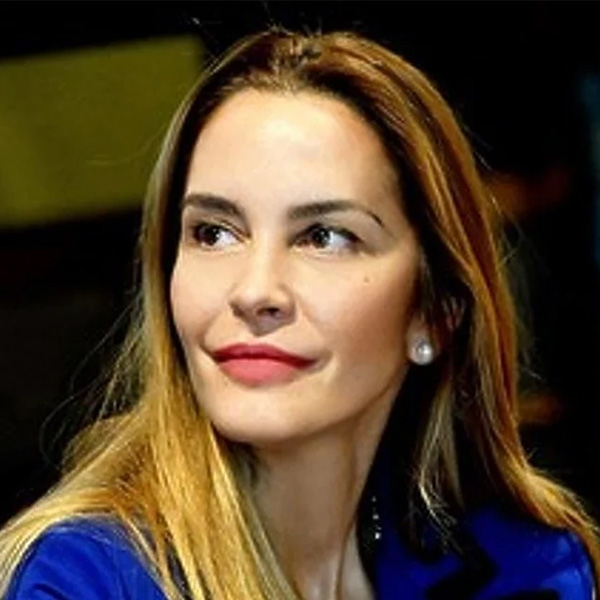
Biljana Braithwaite
Western Balkans Programme Director, the AIRE Centre
Biljana leads the AIRE Centre’s Western Balkans Rule of Law Programme. She has delivered more than fifty extensive rule of law projects in partnership with key national institutions and international agencies over 20 years. These have included gender equality and other forms of technical assistance, human rights training, legislative reform, good governance and the fight against corruption and organised crime. A lawyer by training with degrees from Belgrade University and Lund University’s Raul Wallenberg Institute, Biljana began her career at the Belgrade Centre for Human Rights. She founded and co-edits the professional legal bulletin, Human Rights in Europe, now in its 150th edition. Most recently, she has co-authored a series of guides for judges, decision makers and practitioners in South East Europe focusing on a range of human rights topics, including fair trial and independent judiciaries, migration, COVID-19 and its impact on human rights, and gender equality in ECtHR jurisprudence. She is a member of the boards of the AIRE Centre USA and the International Bridges to Justice.

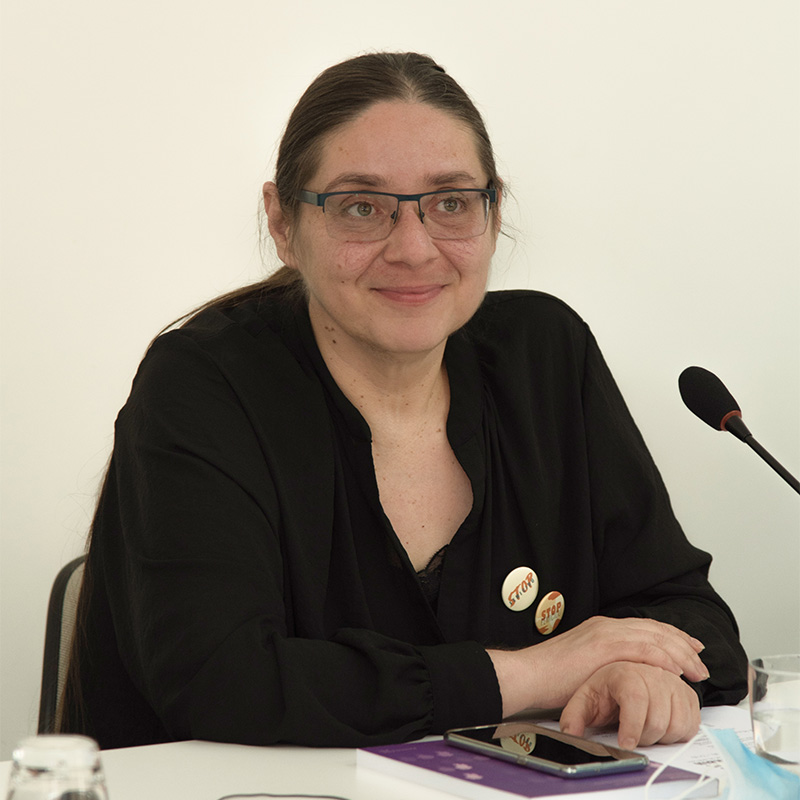
Kosana Beker
Gender Equality Expert
Kosana Beker obtained a PhD degree at the Center for Gender Studies, University of Novi Sad on the topic of intersectional discrimination of women. She has been human rights activist and lawyer for many years, particularly in the area of women’s rights. Currently, she is program director of Women’s Rights Organization FemPlatz and works as a consultant in the area of anti-discrimination and gender equality. She authored and co-authored numerous reports, analysis and publications on implementation of national and international antidiscrimination legislation, women’s rights and disability rights.

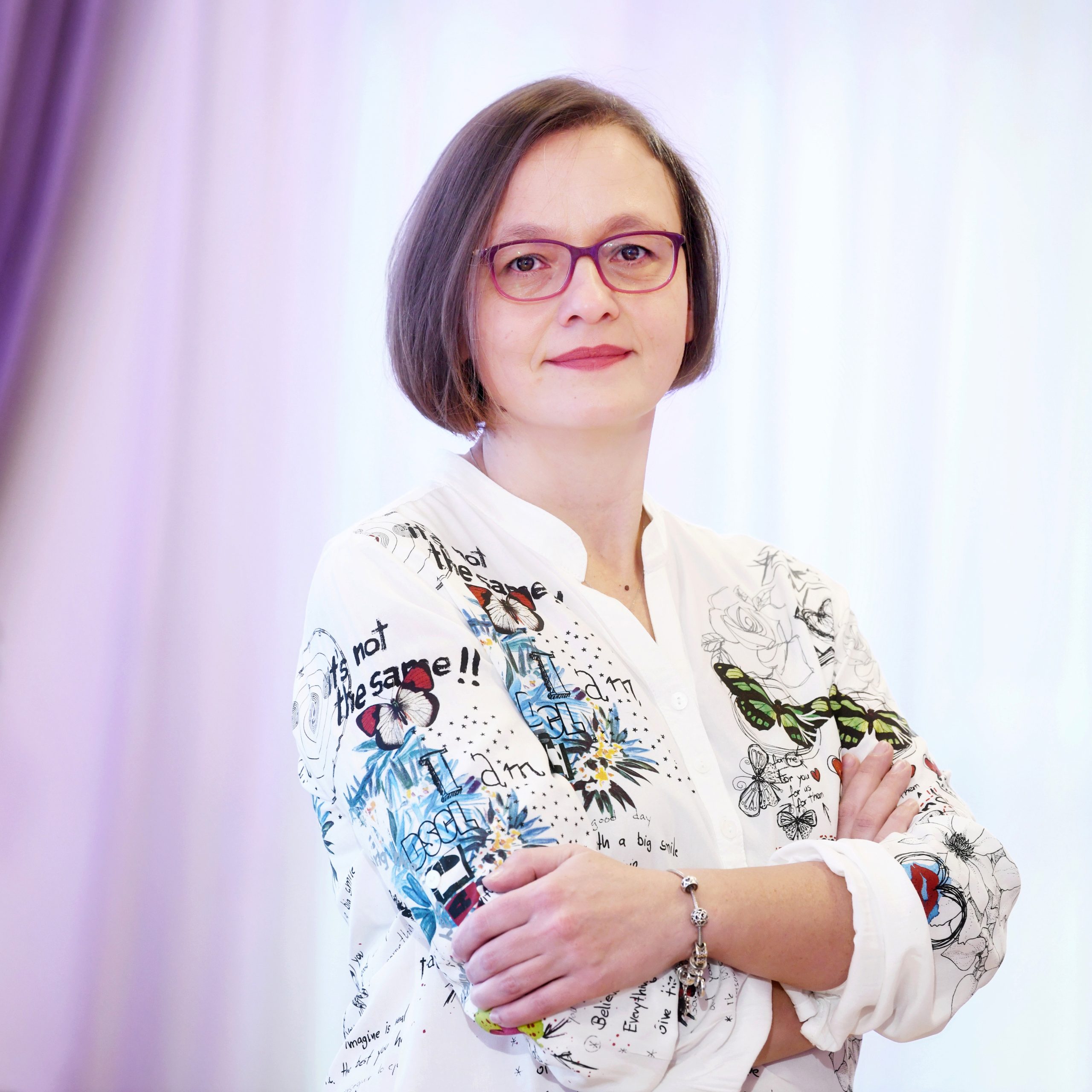
Sabina Djapo
Programme manager for the Western Balkans Rule of Law Programme
Sabina manages the overall Western Balkans Rule of Law Programme. She works with individual project managers to support them in planning and executing project activities, managing resources and ensuring coordination and synergy across all the projects. She leads the Centre’s work on monitoring and evaluation and takes an overview of donor management. She has 20+ years of experience in programme and project management within international and multinational organizations, with extensive achievements in strategic planning, programme and project development and implementation, performance review and evaluation. A particular focus of her work is on good governance, accountability and transparency and economic development. For the past 5 years, her primary focus was on gender equality with specific focus on economic empowerment of women. During COVID-19, Sabina organized a number of sessions with universities across BiH on misrepresentation of women in public life, reaching over 300 students and professors. When working at the British Embassy in Sarajevo, Sabina worked on development of the Gender pledge, an internal document listing the commitments of the organisation towards equal rights of men and women.


Vanja Radevic
Senior Legal expert
Throughout her career, Vanja Radevic has held various positions within the Montenegrin judicial system and governmental institutions. After working at the Higher Court of Montenegro, she enhanced her knowledge of human rights by working as an Advisor to the State Representative of Montenegro before the European Court of Human Rights. During the 42 nd assembly of the Montenegrin Government, she held the position of Advisor for Foreign Policy to the Prime Minister. She has been a member of various working groups within the Council of Europe regarding the civil sector and national institutions for the protection of human rights. She has also co-authored numerous publications analysing the implementation of legislation regarding human rights in Montenegro.

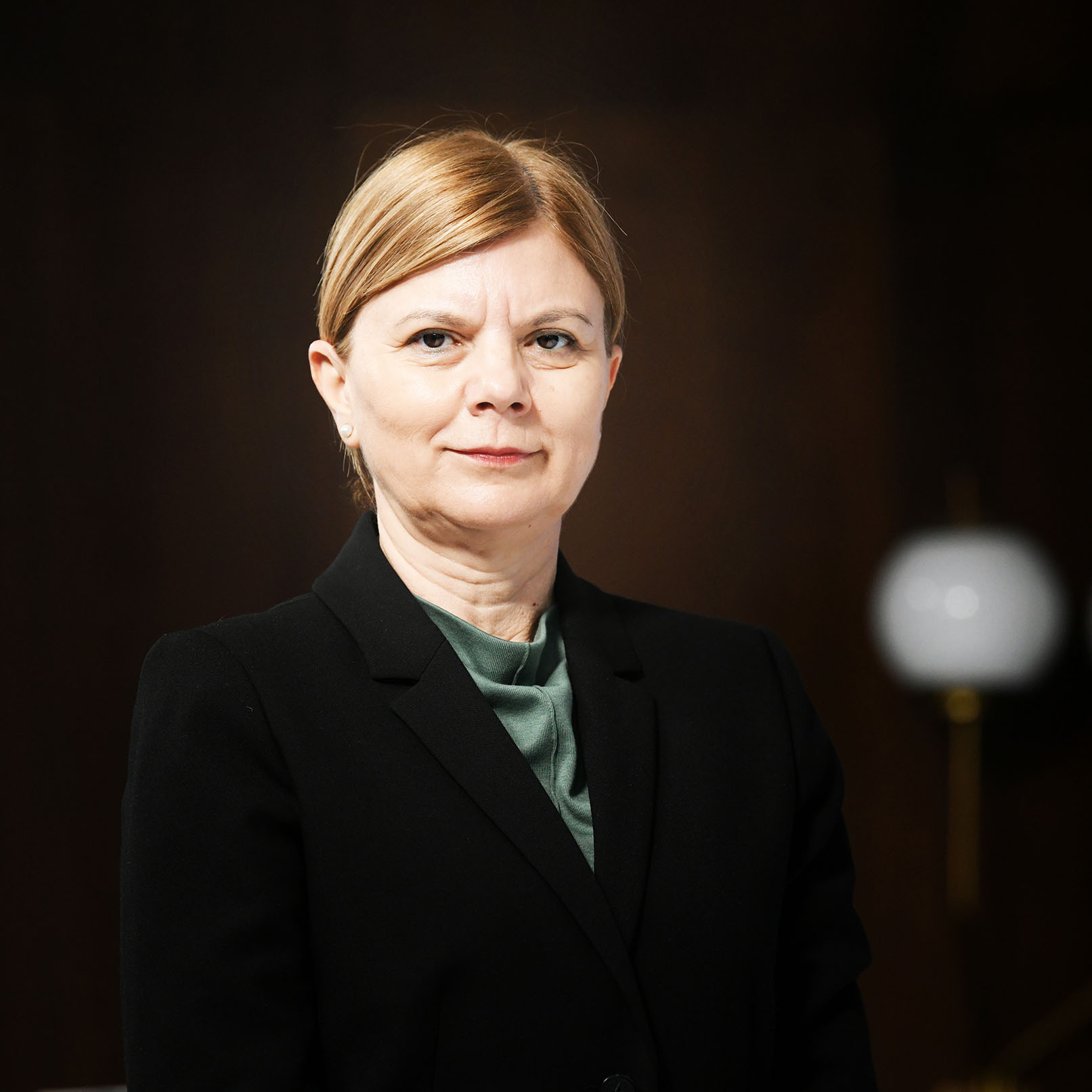
Ardjana Shehi Kalo
Lawyer and Managing Partner of AK Partners Legal & Consulting
Ardjana Shehi Kalo has over 30 years professional experience, mainly as a practicing lawyer in Albania. Ardjana is Managing Partner of AK Partners Legal & Consulting. She has acted as a lawyer, legal consultant and trainer for a number of international organizations (for example, NGOs and development agencies), as well as foreign embassies, international consulting groups, Fortune listed companies and academic institutions.
For many years Ardjana has been a lecturer and trainer at the School of Magistrates in Albania. She has authored many legal articles which have been published in domestic and foreign publications and has co-authored three legal books. For several years Ardjana was an IFLR1000 Highly Regarded Lawyer and the Designated Legal Counsel of the Austrian Embassy in Tirana.
Throughout her professional career Ardjana has been involved in gender matters; she has advocated for legal rights for women and in particular for their economic empowerment. To this end she has also served as a board member of organizations and projects focused on gender equality rights and other gender issues. She has also used her involvement in the visual arts as a mean to promote the rights of women. Ardjana aims to be a role model to women in Albania.
Ardjana holds an incorporated LLM from the Law Faculty of Tirana University. She also holds a Masters in Business Administration (MBA) from Tirana University and Nebraska University (USA).

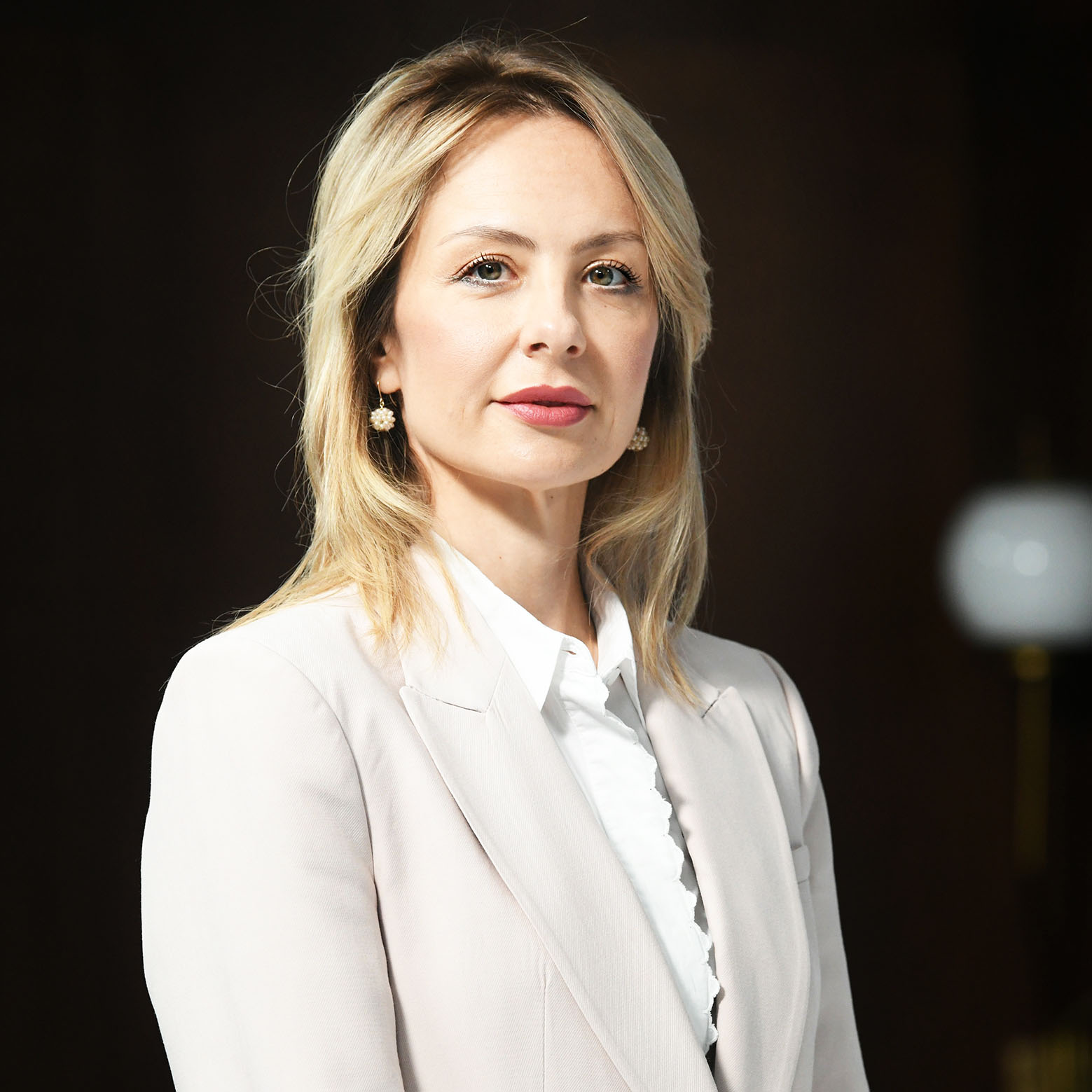
Lejla Konjic Dragovic
Judge of the Court of Bosnia and Herzegovina
Lejla Konjic Dragovic has held various positions during her career within the judicial system in Bosnia and Herzegovina. She has been a judge since 2010 and has worked on all types of criminal cases, including breaches of human rights. She is an educator at the Centre for Education of Judges and Prosecutors in Federation of Bosnia and Herzegovina and is a certified Council of Europe trainer.
She has been a member of various working groups on different topics in connection with gender-based violence, including domestic violence, the criminal offence of rape, and the exercise of the right to property claims, etc. She is an author and co-author of several publications in relation to, amongst other things, the criminal offences of rape and domestic violence in the judicial system. She has also written on case law in Bosnia and Herzegovina.
Lejla holds a Bachelor’s from the Faculty of Law at the University of Sarajevo and also a Master’s from the University of Bologna in European Studies. Her Master’s thesis was on “Exercising the Right to a Fair Trial under Article 6 of the European Convention for the Protection of Human Rights and Fundamental Freedoms”. Lejla passed the Bar exam in November 2006.

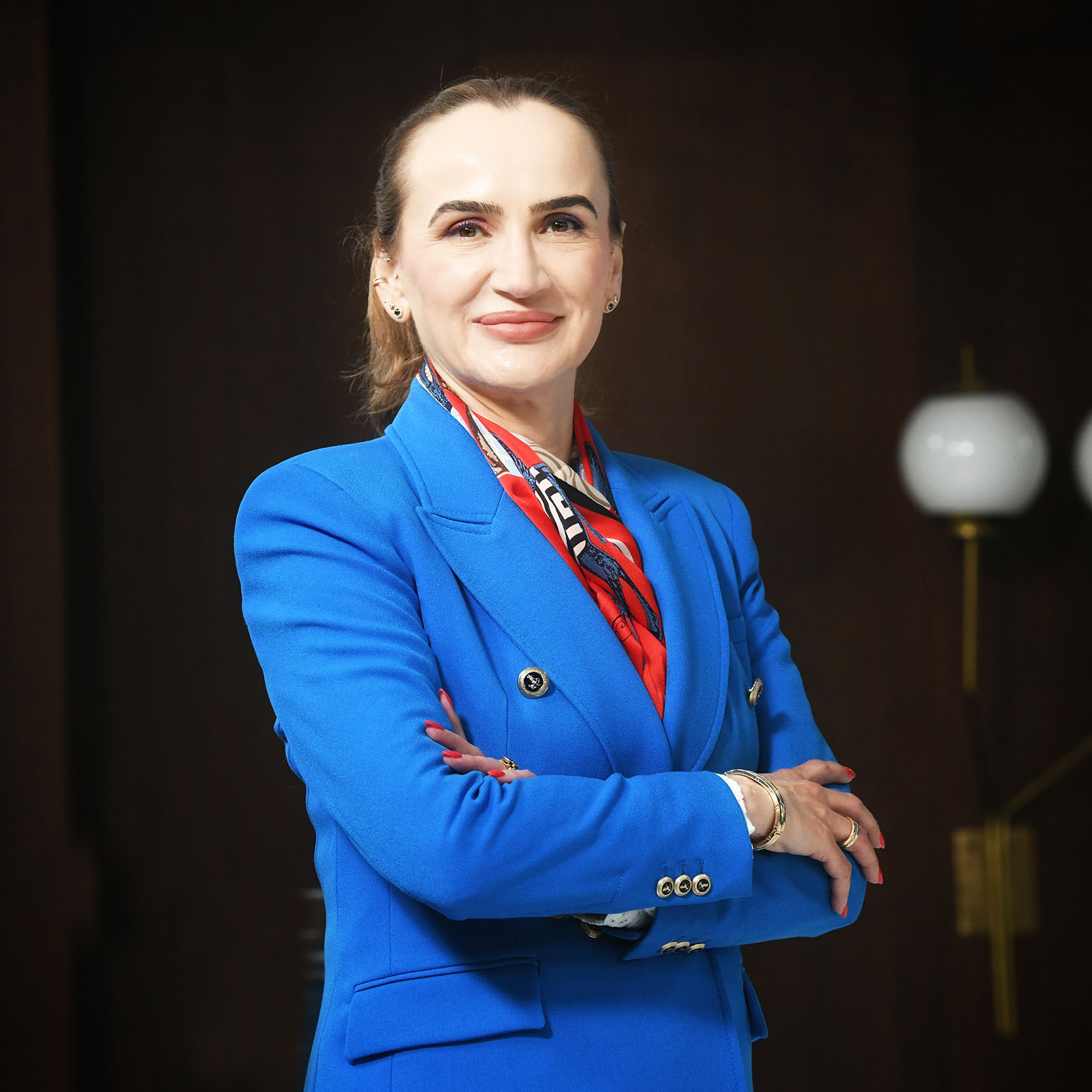
Mirjana Popovic
Judge of The Court of Appeal of Montenegro
Mirjana Popovic is a Judge of the Court of Appeal of Montenegro and the President of the Montenegrin Association of Women Judges (MAWJ).
Mirjana started her legal career as an attorney at law, then became Judge of the Basic and High Court in Podgorica. Her courtroom experience spans more than 25 years. Since 2017 she has been a member of The Council of Europe’s Consultative Council of European Judges (CCJE) in respect of Montenegro. (The CCJE is an independent body of the Council of Europe composed exclusively of international judges.) Since 2018 Mirjana has held the position of the CCJE’s Gender Equality Rapporteur.
Her duties as the CCJE’s Gender Equality Rapporteur taken together with her duties as a judge inspired Mirjana to develop her knowledge of importance of gender equality in the judiciary – an issue which is crucial for the transparency, fairness and accountability of the judiciary. To improve gender equality integrity issues in the judiciary and raise awareness of gender equality in general, in February 2023, Mirjana initiated and established the first-ever Montenegrin Association of Women Judges (MAWJ).
Mirjana graduated from the Law Faculty of the University of Podgorica and passed the Montenegrin Bar exam.

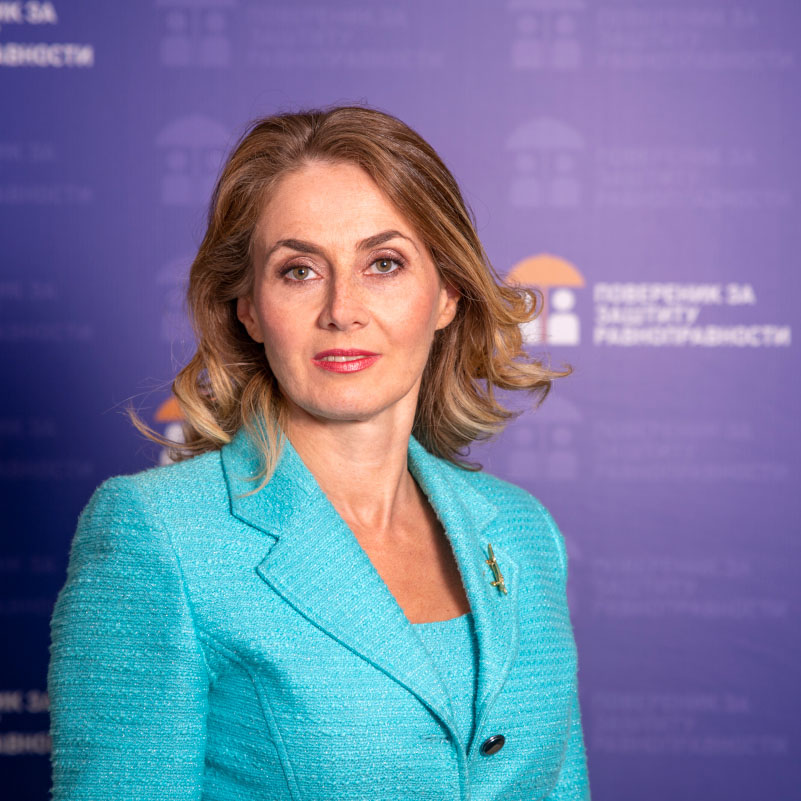
Brankica Jankovic
Commissioner for the Protection of Equality of the Republic of Serbia
Brankica Jankovic has been Commissioner for the Protection of Equality of the Republic of Serbia having been elected to the role by the National Assembly in 2015 and 2020. From 2012-2014 she was State Secretary in the Ministry of Labour, Employment and Social Policy. Before that she was Director of the Gerontology Center Belgrade.
Brankica has been a member of the Gerontological Society of Serbia for the past 15 years. This has involved her in the protection of human rights of senior citizens. She has also been a volunteer with the Red Cross of Serbia and an honorary member of the Bel Hospice Club for palliative care. She has been a member of various professional and expert associations in the field of social protection.
Brankica has been involved in the drafting of various national strategic and legal documents and has published numerous professional papers and publications on the subject of the rights of senior citizens and women, and especially the fight against gender-based violence. Brankica has received multiple awards for her work, including “Contribution of the Year to Europe” for 2018 and the OSCE “Person of the Year” award for 2017.
She graduated from the Faculty of Law at the University of Belgrade, completed her Master’s at the Faculty of Law at the University of Novi Sad and is a doctoral student at the Faculty of Security in Belgrade.
The Network enjoys the support of a Board of Patrons, made up of eminent jurists, including from the European Court of Human Rights. Patrons reflect and advise on international law perspectives, offer support and insight within their fields of expertise, and share experience and know-how. Recognising that, to effectively tackle gender inequality, both women and men must commit to the cause, former President of the European Court of Human Rights, Robert Spano, sits as President of the Board of Patrons. It is hoped that his position as President of the Board will inspire men as well as women judges across the region to engage with the work of the Network and take action to combat gender inequality.
OUR PATRONS

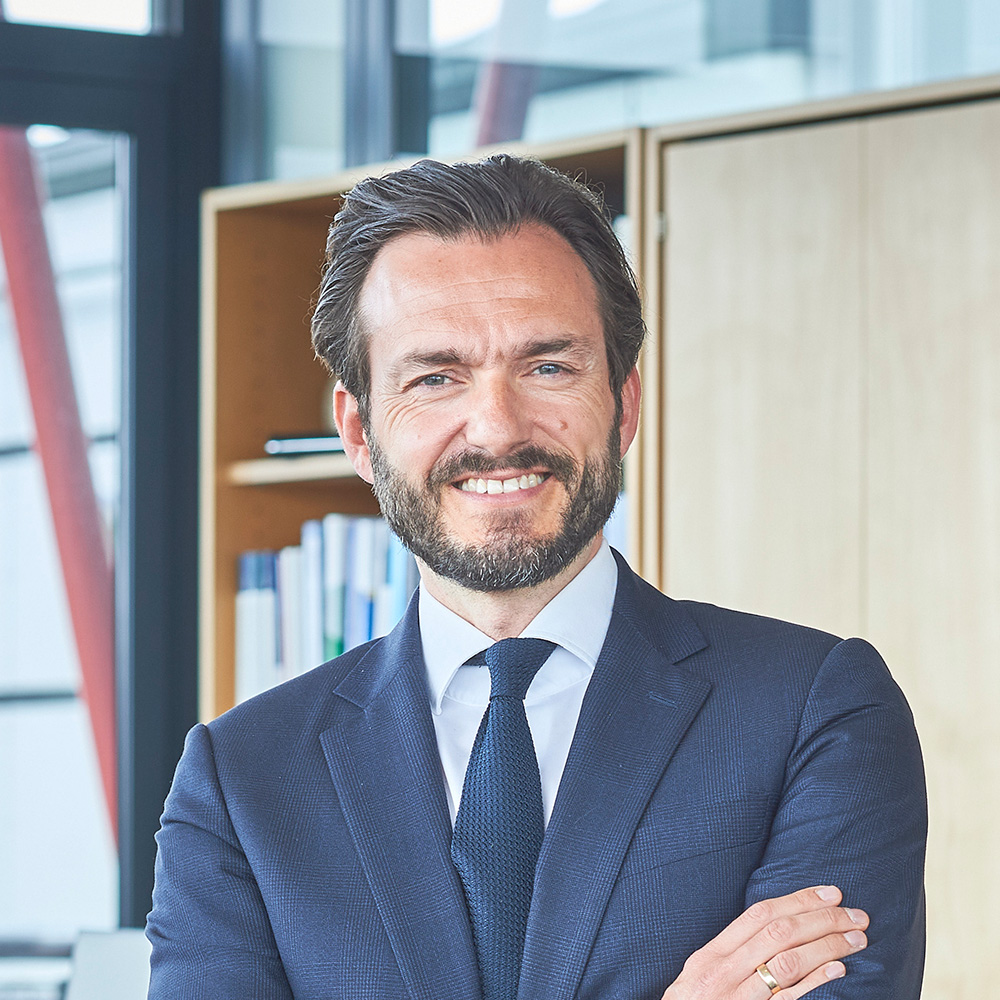
Robert Spano
President of the Board of Patrons and former President of the European Court of Human Rights
Robert Spano, former President of the European Court of Human Rights, was elected to the Court in 2013 as the judge in respect of Iceland. He served as Section President from May 2017, Vice-President of the Court from May 2019, and President of the Court from May 2020 until 31 October 2022. Before taking up his judicial office he served as Parliamentary Ombudsman of Iceland from 2009-2010 and again in 2013. He served as Dean of the Faculty of Law, University of Iceland, from 2010-2013, and was appointed professor of law in 2006. He was chairman of the Standing Committee of Experts in Criminal Law in the Icelandic Ministry of Justice from 2003-2009 and from 2011-2013. He was also the Icelandic delegate to the European Committee on Crime Problems and an Independent Expert to the Lanzarote Committee of the Council of Europe. He is a graduate of the University of Iceland and of the University of Oxford.

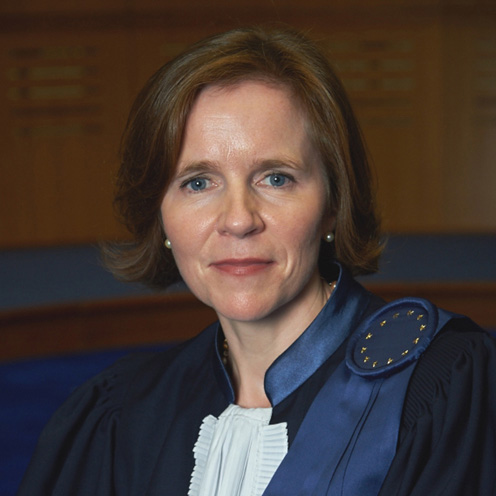
Siofra O’Leary
President of the European Court of Human Rights
Síofra O’Leary, President of the European Court of Human Rights, is the judge elected in respect of Ireland and is the first woman to hold the position of President of the Strasbourg Court. Appointed in 2015, she served as the President of the Fifth Section from January 2020 and as the Vice-President of the Court from January until October 2022. Prior to joining the European Court of Human Rights, Judge O’Leary worked for almost two decades at the Court of Justice of the European Union in judicial and administrative capacities. In parallel to her work at both European courts, Judge O’Leary is a Visiting Professor at the College of Europe in Bruges. She served on the Editorial Board of the Common Market Law Review and is now a member of both its Advisory Board and the Board of the Irish Centre for European Law and a member of the Society of Legal Scholars. In 2016 she was elected an Honorary Bencher of the Honorable Society of King’s Inns.
A graduate of University College Dublin (BCL) and a postgraduate of the European University Institute (PhD), Judge O’Leary was previously the Assistant Director for the Centre of European Legal Studies at the University of Cambridge, a Fellow of Emmanuel College, a Visiting Fellow at the Faculty of Law, University College Dublin, a Postdoctoral Fellow at the University of Cádiz, Spain and a Research Associate at the Institute for Public Policy Research in London. She has published extensively in academic journals and legal monographs on the protection of fundamental rights in EU law and under the ECHR, EU employment law, the free movement of persons and services and EU citizenship generally.

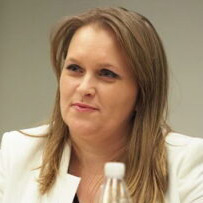
Ivana Jelic
Judge on the European Court of Human Rights
Ivana Jelić is judge of the European Court of Human Rights elected in respect of Montenegro in 2018. She is a member of Legal Sciences Committee of Montenegrin Academy of Sciences and Arts, as of 2015. She is a member of the Senate of the Montenegrin Association of Lawyers, as of 2018. Before joining the Court, she was employed as an Associate Professor at the Faculty of Law, University of Montenegro. She served as a Vice President and a member of the UN Human Rights Committee (2015-2018). She also served as an independent expert in different bodies of the Council of Europe (2007-2018), inter alia, as a Gender Rapporteur and the 2nd Vice Chair of the Advisory Committee on the Framework Convention for the Protection of National Minorities (2012-2016). She studied law at the University of Montenegro, University of Belgrade, Berkeley Law School of the UC Berkeley and Columbia Law School in New York, as a JFDP fellow. She holds LL.M (2004) and PhD (2007) degrees in public international law, Belgrade Law School, University of Belgrade, Serbia.
In parallel to her work at the University and the Court, Judge Jelić was a Distinguished Visiting Professor – Mercator Fellow at Free University of Berlin (2016/2017) and has been a Visiting Professor at the Europa- Institut of the University of Saarland, as of 2019. She serves on the Advisory Board of the Israel Law Review and Advisory Editor of the Balkan Yearbook of European and International Law. She has published extensively in academic journals and monographs on the international protection of fundamental rights under the ECHR and ICCPR, rule of law, gender equality and minority rights.

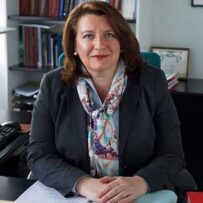
Mirjana Lazarova Trajkovska
Judge on the Supreme Court of the Republic of North Macedonia
Mirjana Lazarova Trajkovska was elected to the Supreme Court of the Republic of North Macedonia in March 2020. From February 2008- February 2017, she was Judge at the European Court of Human Rights. From November 2015 – February 2017, she was President of the First Section of the European Court of Human Rights. From 2003 to 2008 she was a Judge of the Constitutional Court of the Republic of Macedonia. From 2001- 2003, she was the Head of Department on Human Rights at the Ministry of Foreign Affairs. From 2002 to 2003 she was President of the State Election Commission in the Republic of Macedonia. In May 2018, she was visiting Professor of Human Rights at the Renmin University of China in Beijing. In 2017, she was a visiting fellow to the Faculty of Law at the University of Birmingham, UK and Faculty of Law at the Catholic University in Lille, France.
She was a Member of the European Commission for democracy through law (Venice Commission). She was a Deputy Chair of the Council of Democratic Elections, A member of the Steering Committee on Human Rights at the Council of Europe; and a member of the Working group of the COE Committee of Experts on Nationality (CJ-NA-GT) working on the Convention on the avoidance of statelessness in relation to State Succession.


Ledi Bianku
Judge on the Constitutional Court of Bosnia and Herzegovina
Ledi Bianku holds the office of international judge of the Constitutional Court of Bosnia and Herzegovina. He is also, since 2018, an associate Professor at the University of Strasbourg. From 2008-2019 he was a Judge at the European Court of Human Rights in respect of Albania. He served previously as member of the European Commission for democracy through law (Venice Commission) from 2006-2008. He also chaired the National Audio-visual Authority from 2006-2007. He taught Public International Law, EU law and Human Rights law at the Tirana Law Faculty and the Albanian School of Magistrates from 1993-2007. He also served as legal advisor for various national and international bodies, and is currently a member of the Ethics Committee of the Prince Albert II Foundation. Mr. Bianku is a graduate from Tirana University and College of Europe in Bruges.
PARTNERSHIP WITH JUDICIAL TRAINING INSTITUTES
We work closely with judicial training institutes (JTIs) across the region in the design, delivery and implementation of all Network activities.
In July 2022, we signed a Memorandum of Cooperation with each of the JTIs in the region, to officially mark the start of our collaboration to establish the GCJ Network.
By signing these bilateral agreements, the AIRE Centre has established cooperation with the JTIs in Albania, Bosnia and Herzegovina, Kosovo, Montenegro, North Macedonia and Serbia, laying the foundations for the Network’s future activities.
Albanian School of Magistrates
Professor Sokol Berberi of the Albanian School of Magistrates said, after signing of the Memorandum of Cooperation:
“Gender Equality trainings and seminars in the Albanian School of Magistrates aim at impressing on the minds of magistrates that the effectiveness of gender equality legislation depends largely on its application and interpretation, as magistrates are strategically placed to determine such effectiveness by proper utilisation of this legislation in their judgments, particularly in promoting and enhancing women’s rights. The GCJ initiative further contributes to the positive value regional justice academies and schools have acquired through years of cooperation with the AIRE Centre. The AIRE Centre is one of the School’s oldest partners. Our cooperation dates back to 1999, when we organised training for judges and prosecutors, together with the Council of Europe. Enhancing our partnership with this Memorandum of Cooperation, once again, reiterates our willingness to continue working together towards implementing common professional training objectives, because judicial training is, indeed, a very important factor for combatting inequalities and injustices.”
Judicial and Prosecutorial Centre of the Federation of Bosnia and Herzegovina
Director of the Judicial and Prosecutorial Centre of the Federation of Bosnia and Herzegovina Arben Murtezić said, after signing of the Memorandum of Cooperation:
“Today is an important day for a number of reasons. First, we are making another step towards strengthening regional cooperation, the importance of which requires no elaboration. Second, the very subject of the Memorandum, gender equality, is one of the key topics in any democratic society and no efforts should be spared to achieve it. We are glad that the AIRE Centre is the one supporting and moderating these activities, given their huge experience and the extremely positive experiences everyone in the region has had in cooperating with this world-renowned organisation.”
Judicial and Prosecutorial Centre of Republika Srpska
Director of the Judicial and Prosecutorial Centre of Republika Srpska Tomislav Čavić said, after signing of the Memorandum of Cooperation:
“We have been working continuously on building judges’ and prosecutors’ awareness of the need to train and educate themselves. I believe that we have achieved that goal over the past 20 years. Judges and prosecutors recognise the importance of continuously working and informing and bettering themselves. The fact that representatives of judicial academies and institutions from the entire region, as well as across Europe, are with us here today is yet another confirmation of our work. Today’s launch of the GCJ Network will ensure high quality judicial training to raise awareness of gender equality and suppress gender bias and stereotypes as causes of discrimination against women. Continuous judicial training will preclude the risk of gender bias and stereotypes undermining the impartiality of judges. Finally, courts are under the obligation to effectively protect the realisation of rights and freedoms that are related to gender equality and enshrined in international conventions and the relevant international instruments.”
Kosovo Justice Academy
Director of the Kosovo Justice Academy Enver Fejzullahu said, after signing of the Memorandum of Cooperation:
“The Kosovo Justice Academy is pleased to be part of the efforts to establish the Gender Champions in Judiciary Network (GCJ Network), which will be achieved today when the Memorandum of Cooperation is signed by the judicial academies and training centres in the region. Acknowledging the importance of trainings in the gender equality area, the Kosovo Justice Academy in 2017 started implementing trainings on gender equality and non-discrimination, and has ever since been providing it regularly to judges, prosecutors, and legal professionals in the judiciary and beyond. The trainings cover both substantive and procedural law governing property, employment, inheritance and governance.”
Montenegrin Centre for Training in Judiciary and State Prosecution
Ljiljana Lakić, Chairwoman of the Montenegrin Centre for Training in Judiciary and State Prosecution said, after signing of the Memorandum of Cooperation:
“The Montenegrin Centre for Training in Judiciary and State Prosecution, as the national institution for judicial training, has long recognised the importance of continuously expanding knowledge of gender equality, both through the initial training of candidates for judges and prosecutors and the continuous training of judges and state prosecutors. I have to emphasise that the AIRE Centre is one of our first and most important partners. Our cooperation, which began in 2000, has included activities to hone the skills and knowledge in applying the European Convention on Human Rights and the case-law of the European Court of Human Rights regarding all areas relevant to the work of the judiciary.”
North Macedonian Academy for Judges and Public Prosecutors
Director of the North Macedonian Academy for Judges and Public Prosecutors Natasha Gaber-Damjanovska said, after signing of the Memorandum of Cooperation:
“Gender equality is enshrined as a civil and political right in the North Macedonian Constitution. Considering that equal rights of women and men are crucial for the overall development and progress of society, the Academy has included gender equality training both in its initial and continuous training programmes. The further advancement of these rights requires greater awareness of gender equality and a decline in the number of gender-based crimes. This is why the Academy has, in tandem with its international partners, including the AIRE Centre, been advocating focus on these European values by the professional community, particularly the judiciary.”
Serbian Judicial Academy
Director of the Serbian Judicial Academy Nenad Vujić said, after signing of the Memorandum of Cooperation:
“Gender equality trainings are one of the programme priorities of the Serbian Judicial Academy. They are part of both the curriculum of initial training for future judges and prosecutors and of the continuous training of judges and prosecutors. Regional cooperation with the support of the AIRE Centre, a years-long partner of the judicial training institutions in the region, will further improve gender equality trainings, as well as judicial and prosecutorial practices concerning this important issue.”
BROADER COLLABORATION
We engage with wider stakeholders including police, prosecutors, social care workers and media representatives reporting on gender-related issues, crime and violence, as beneficiaries of training and capacity building and as participants in discussions, debates, thematic meetings, and consultations.
We also benefit from the input of a wider regional pool of experts, advisors, consultants, and officials who share their knowledge, expertise and experience to inform the activities of the Network where relevant.
